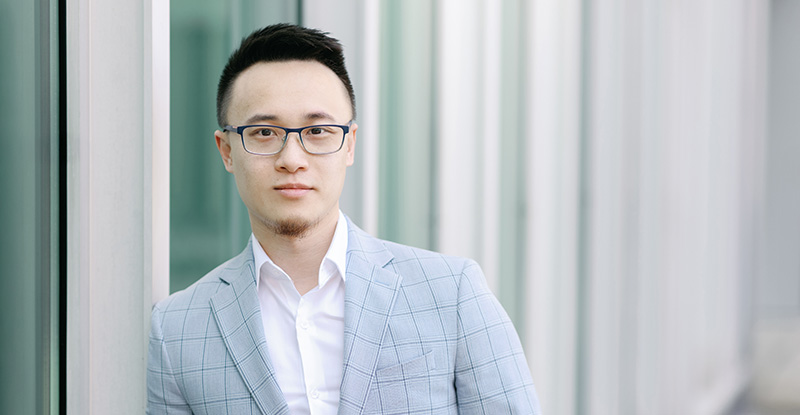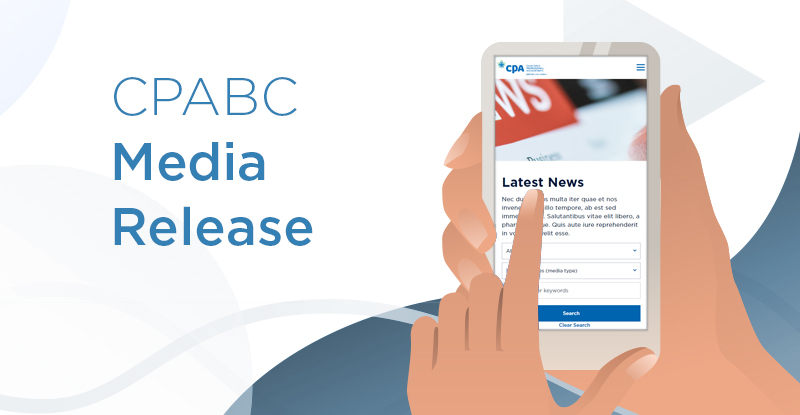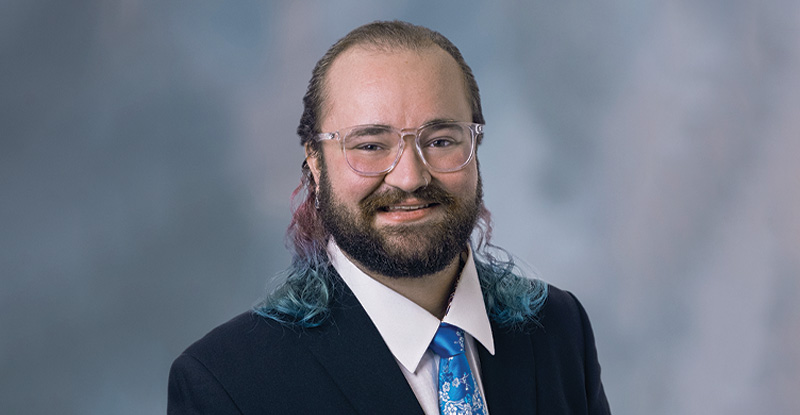
Take the next step in your leadership journey with CPABC's Women in Leadership Certificate Program, designed specifically for women in the accounting profession, running April 8 - June 24, 2024. Learn more and register to save your spot.
Vivian Tse, CPABC’s director of communications, recently sat down for a podcast interview with two inspiring CPAs—Amanda Collinge Bae, CPA, CGA, associate vice-president of operations, innovation, and insights at Raymond James, and Selena Woo, CPA, CMA, CFP, vice-president of advisory services, associates and operations, at Nicola Wealth—to find out how they’re leading the charge in advancing women’s leadership. The following article is based on this episode of Coffee Chats with CPABC.
In honour of International Women’s Day on March 8, let’s talk about how you’re both helping to advance women’s leadership in your organizations, the wealth management industry, and the community. What have you been working on?
Amanda: It’s been a really exciting past year and a half at Raymond James. My colleague Charlotte Jakubowicz [vice-president of fixed income and currencies] and I started an employee resource group called “The Women of Inspiration,” and it has been a labour of love. We have a wonderful group of volunteers, and we’re hosting events to create community and lift women up within the organization. We’re also doing community outreach, which we believe is very important.
I’m also heavily involved with our National Inclusion Council at Raymond James, and I’m a mentor with the Blossom Mentorship Program at the University of British Columbia, which is run by a group called Young Women in Business. I’ve also been honing my “female-forward” skills through the executive MBA program at Ivey Business School, which has given me extra tools that I can use to elevate not only my own voice, but also the voices of women around me.
Selena: Like Amanda, I’m very passionate about advancing social justice. I think it’s up to all of us to be allies and to play a role in making a difference. For me, it’s really about how I can inspire action, motivate change, and be a beacon of hope and possibility for others.
At Nicola Wealth, I’m a steering committee member and podcast host of Women’s LEAD, which stands for Leadership, Excellence, Achievement, and Diversity. It’s a community and movement dedicated to celebrating and uplifting women from all backgrounds by sharing their stories. Storytelling is a powerful way for us to connect, grow, and learn together to build a deep and authentic connective community.
My roles with Women’s LEAD go hand in hand with my work as co-chair of the Nicola Inclusion Committee, which is committed to igniting equity, advancing diversity, and leading inclusively. I firmly believe that collectively, we can drive real change and shape the future of work to be human-centred.
In addition, I’m involved with various organizations that serve and support youth, women, the Chinese community, and other marginalized communities, and I’m a mentor with the mentorship program of Women in Capital Markets.
It’s really great to see how your organizations are supporting women and championing equity, diversity, and inclusion. I think the support that’s available today, compared to 10 or 15 years ago, is a sign of the effort women like you have put in. So I’m curious about your own journeys. During your career, Amanda, have you faced any barriers because you’re a woman?
Amanda: This is a challenging question to answer, because I can only speak to my own lived experiences. I can say that some of the challenges have been obvious and others have been more like undercurrents—you can feel them but you can’t quite put your finger on them.
One example of a very obvious barrier happened about nine years ago when I was a project manager working with a group of men out of New York. I kicked off a meeting and—I’ll never forget it—they asked: “Where’s your boss—the man?” It took me aback, because I’d never heard something so direct in that way. But I just took up my space and owned it from that point forwards.
An undercurrent I can think of is a comment like, “She’s overconfident.” To this day, I don’t think that would be said about a man. Something like that isn’t as obvious, but you can still feel that you’re being treated and perceived differently simply because you’re a woman. And to me, that’s a roadblock.
Hopefully that mindset has started to shift and will continue to shift for the next generation. What about challenges unique to women of colour? Selena, can you share what it has been like for you, as a woman of colour in a male-dominated industry?
Selena: Early in my career, there was definitely a lack of representation in leadership. As a result, I just didn’t know what was possible, how far I could go, or how to aspire to go higher.
So I want to change this narrative and be a role model for women—to help them increase their confidence to seek executive roles in their own careers. Having more role models in this space—specifically, more women of colour in senior decision-making roles—will support the way to a more equitable, forward-thinking society and carve a path forward for our future generations. I firmly believe that you can’t be what you can’t see.
Amanda: Visibility is critical—absolutely.
100%. What about the support you’ve received in your careers? What kinds of support have been invaluable?
Selena: I’m very lucky to work alongside like-minded, driven, and collaborative colleagues—both men and women—in an environment that nurtures success. Having the right work environment is key, and we need colleagues who believe in us and who will cheer for us when we’re not in the room. When we are surrounded by people who champion our aspirations—friends, family, colleagues—it becomes easier to believe in ourselves and pursue our goals.
Among these people, you need leaders who will sponsor you—who will see the potential in you, because it can be difficult to find your own voice. At the same time, you do have to find your voice. It’s important to know what support you need and be able to ask for it—to advocate on your own behalf and champion yourself. Ultimately, our voices are our superpower, and we need to live out loud, unapologetically, with pride in our achievements and accomplishments.
Amanda: Absolutely—support is key. I’ve been very fortunate to have great allies in my journey into leadership roles, including my current boss and SVP of operations, Michael Brown, and our COO, Lloyd Costley, both of whom have helped me grow as a leader. And they’re not just allies—they’re also sponsors. They’re the people, as Selena mentioned, who continue to say my name in rooms when I’m not there.
You can have tons of talent and be the best at something, but if your talent isn’t recognized and nurtured, you’re going to be stuck. So having leaders who see you and encourage you throughout you career is incredibly important. You also need people who will give you hard truths—trusted individuals who will advise you to reconsider your approach to certain issues or think about how you’re being perceived in various situations.
Can we talk about how hard truths relate to the stories we tell?
Amanda: I think when we share our stories and experiences, they shouldn’t always be about accomplishments and successes. The leaders who personally inspire and uplift me the most are the ones who share stories about times when life didn’t work out as planned—when they had to pick themselves up and become even better versions of themselves, turning battle scars into a catalyst for transformation.
When we hear these kinds of stories, we learn that we’re not alone in experiencing setbacks or challenges, and that we will make it through.
Selena: I really appreciate Amanda’s point about adversity, because that’s a huge piece. It’s not just about the finish line, because we don’t start at the finish line.
Amanda: It’s a good reminder when sharing stories with women and young girls that career paths often aren’t linear. I think we need to be open to saying, “Hey, I made these mistakes,” or “These are the challenges I’m experiencing.” Because the more open and vulnerable we can be, the more relatable these stories will be for others. There are life lessons we can all glean from each other.
Vulnerability is an interesting topic, because in some cultures, we’re taught not to show emotion. And for many women of colour like myself, we had only the women in our families to look to as role models. So Selena, can you tell me if there were any female role models who inspired you when you were growing up?
Selena: I think this is why it’s so important to share diverse stories. Being from a different culture will impact how you show up as a leader, and it can be a barrier, especially for women. Growing up in a Chinese culture, for example, we’re taught to not speak about our feelings and to just focus on working hard.
I mentioned earlier that there was a lack of representation in my career journey, but I will say that my mom was a role model for me growing up. She worked full-time in accounting in the oil and gas sector while raising three kids and managing our household. She taught me a lot about immigrant grit and resilience in the midst of adversity. And today, I would say my kids are two of my role models. My daughter inspires me to fight for the future of young girls everywhere so that they can experience a world without barriers and limitations simply due to gender and ethnicity. And my son—he reminds me every day of the critical role that allyship plays.
Outside of my family, there are so many women who inspire me now—the work they’re doing, the trails they’re blazing, the paths they’re forging for others. And personally, I think all women are trailblazers and role models in their own right. Ultimately, we each have to be our own best role model.
Speaking of trailblazing, what responsibilities do you think we have to uplift and support the next generation?
Amanda: I think it’s super important to be able to provide others with a platform that gives them access to opportunities. I experienced the power of this firsthand at Raymond James when a leader named Janine Davies [vice-president of corporate communications and marketing] created our National Inclusion Council and asked me to be a part of it. She knew about all of the work I’d been doing for women and gave me another platform, which was huge for me. So I would love as a leader to be able to provide a platform for others and help them become the best versions of themselves.
I think the other thing that’s really important is to not compete. We need to focus instead on creating opportunities for people to network and have community—to be the conduit for allies. As Selena was saying, she’s helping her son become an ally, which is fantastic. Because we can’t do this work of change by ourselves as women. We need allies.
Selena: Yes! It’s about community over competition. It’s important to recognize that we’re not each other’s competition—we’re actually each other’s supporters and cheerleaders. Your friends may be at the C-suite level or maybe they’re doing really well in their lives, but that’s their journey. Your journey might look a little bit different. I think that is the mindset that will set everybody up for success.
I think the road you’re both paving in the wealth management industry will make it a lot easier for the women who follow in your footsteps. How would you like to see the next generation pay it forward, in turn?
Selena: I’d like to see them keep the discussion alive and bring mentorship, advocacy, and sponsorship forward in their networks. Ultimately, it’s up to all of us to help others achieve success. We need to continue using our voices and platforms for good, because that’s how we can inspire others to drive change forward and keep the cycle going. We need to continue giving women a seat and a voice at the table and recognize them for their work. And not just in the boardroom—we need to advocate for women in all facets of life.
Ultimately, though, I would love to see women’s leadership normalize over time so that we no longer even need to have this discussion.
What advice do you have for women who are at the beginning of the cycle, stepping into leadership roles for the first time?
Amanda: There’s a lot of pressure on leaders today to be altruistic and all-encompassing, so I think it’s important to remember that we’re all human. When you’re first stepping into a leadership role, be your authentic self. Take up space. Really dig into what it is you want your brand to be as a leader. And ask for help, because leadership is a complex beast.
Also, I think it’s particularly important for women in leadership to remember that not everyone’s going to like you, and that’s okay. Don’t let the desire to be liked cloud your decision-making. Ultimately, you need to make decisions that are right for the organization—decisions that people will respect.
What is one thing you think every individual can do to empower their female colleagues or friends?
Selena: The one thing for me would be to create space for women, invite them into conversations, and celebrate them. Give them space to celebrate themselves. And I’d like to issue a call to action for all women out there: Let’s stand together, amplify our voices, and lift each other up.
Amanda: Echoing Selena, my one thing would be to say women’s names in rooms when they’re not there. Put the spotlight on them and talk about their talents. And my call to action is this: I challenge everyone to shine the spotlight on at least one wonderful woman in the weeks ahead.
Thank you both so much for sharing your insights and for your ongoing efforts to empower others.
This article was originally published in the March/April 2024 issue of CPABC in Focus.


